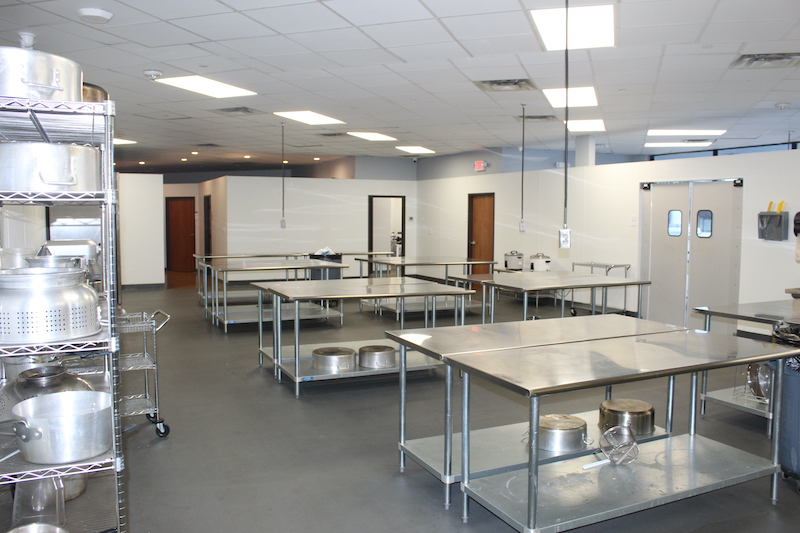Launching Your Food Business with a Rental Kitchen
The dream of opening your own food business is exciting, but the reality of building a commercial kitchen from scratch can be daunting. High costs, complex regulations, and logistical hurdles can quickly dampen your entrepreneurial spirit. Thankfully, there’s a solution: rental kitchens, also known as shared-use or commissary kitchens. These commercial spaces offer a flexible and cost-effective way to launch your culinary venture without the massive upfront investment. In this blog post, The Cookline will guide you through the ins and outs of using a rental kitchen and navigating the necessary regulations and permits.

What is a Rental Kitchen?
A rental kitchen is a fully equipped commercial kitchen space available for rent on an hourly, daily, or monthly basis. They are often used by food entrepreneurs, caterers, food truck operators, and other culinary professionals who need a licensed space to prepare and store food.
Benefits of Using a Rental Kitchen
- Lower Startup Costs: Building a commercial kitchen can be incredibly expensive. Renting allows you to access professional-grade equipment and facilities without the hefty price tag.
- Flexibility: Rental kitchens offer flexible scheduling options, allowing you to use the space only when you need it.
- Reduced Risk: Starting a business always carries risks. By renting a kitchen, you can test your concept and build your customer base without committing to a long-term lease or significant investment.
- Community and Networking Opportunities: Rental kitchens often foster a collaborative environment, connecting you with other food entrepreneurs and potential partners.
Regulations and Permits
While using a rental kitchen offers many advantages, there are still regulations and permits you need to be aware of:
- Business License: You’ll need to obtain a business license from your local government to operate legally.
- Food Handler’s Permit: Anyone handling food in the kitchen will need a food handler’s permit, demonstrating their knowledge of safe food handling practices.
- Health Department Permits: Your products and processes may need to be approved by your local health department. This typically involves an inspection of the rental kitchen and your food preparation procedures.
- Insurance: Most rental kitchens will require you to have liability insurance to cover any accidents or damages that may occur.
Additional Considerations
- Kitchen Availability: Popular rental kitchens may have limited availability, especially during peak times. Be sure to book your time in advance.
- Storage: Some rental kitchens offer storage space for your ingredients and supplies.
- Equipment Access: Ensure the rental kitchen has the necessary equipment for your specific needs.
- Cleanliness and Sanitation: Maintain high standards of cleanliness and follow all sanitation protocols to ensure food safety.
The Cookline: Your Partner in Culinary Success
At The Cookline, we offer state-of-the-art rental kitchens designed to support your culinary journey. Our facilities are equipped with professional-grade equipment, ample storage, and flexible scheduling options. We also provide guidance on navigating local regulations and permits, ensuring a smooth and successful launch for your food business.
Starting a food business can be challenging, but a rental kitchen can make the process more accessible and less risky. By understanding the regulations and permits involved, you can confidently launch your culinary venture and turn your passion into a profitable business.
Ready to take the next step? Contact The Cookline today to learn more about our rental kitchens and how we can help you achieve your culinary dreams!
